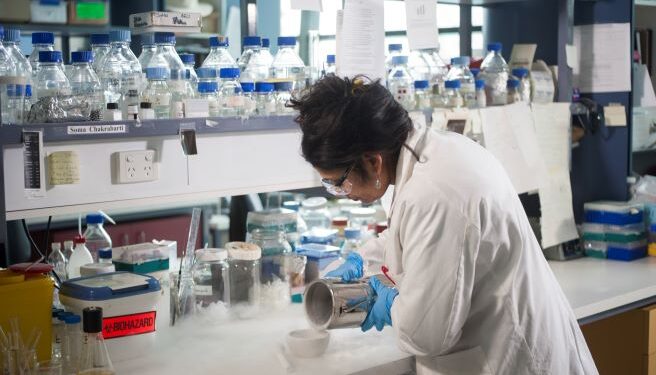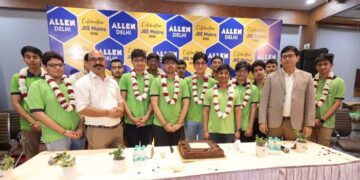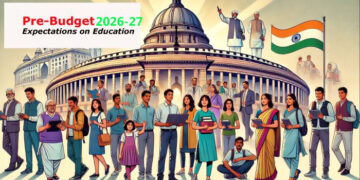At the end of 2024, the education sector stands at the crossroads of transformative change. From Early Education to school education to higher education and skilling, 2024 reflects a year of significant progress, underpinned by policy innovations like the National Education Policy (NEP) 2020 and a growing emphasis on technology-driven learning. The integration of Artificial Intelligence is revolutionizing the way students learn, creating personalized and dynamic educational experiences. Hybrid and blended learning models are further enhancing accessibility, allowing students to engage in flexible, efficient ways.
The Indian EdTech ecosystem, with approximately 11,000 active companies, ranking as the third highest-funded globally in terms of total investment to date, also saw a rebound but not to 2021 level. Innovative online courses and professional upskilling programs, particularly in areas where offline education falls short, continues to offer some hope for continued growth.
Looking towards 2025, AI will continue to drive educational personalization to new heights, while the lifelong learning and skills development will be pivotal in equipping individuals for an ever-evolving workforce.
Here are some industry comments on the year-end trends:
EdTech & K12
“With advancements in EdTech, from immersive VR classrooms to cutting-edge platforms, we’re empowering both educators and learners.Equally important, sustainability initiatives are becoming an integral part of curricula, fostering future leaders who are environmentally conscious. We are also recognizing the critical need to focus on mental health and well-being, ensuring that students are supported holistically.”— Sanamdeep Chadha, Education Reformist and Director of Genesis Global School, Noida
******************
“As 2024 draws to a close, the K12 education sector reflects a year of significant progress, underpinned by policy innovations like the National Education Policy (NEP) 2020 and a growing emphasis on technology-driven learning. This year, schools and educators embraced data-driven approaches to personalize educational experiences, optimize resource allocation, and drive student engagement. The sector has taken strides toward inclusivity and enhanced learning outcomes by aligning policy vision with actionable insights.
In 2025, the focus will sharpen on leveraging data analytics and advanced technologies to individualize learning pathways, providing tailored support for diverse student needs. Holistic development will remain central, encompassing emotional well-being, stress management, and critical life skills. Additionally, the growing adoption of hybrid education, spurred by challenges such as rising air pollution, highlights the need for adaptable solutions that prioritize student health and safety while ensuring uninterrupted learning. Simultaneously, the educator’s role continues to evolve from instruction to facilitation, emphasizing collaboration and ethical integration of technology in classrooms.”— Jasmeet Singh Chhabra, Co- Founder, Crimson Schools
******************
“As we reflect on the past year, we are proud of the significant strides made by the Indian Education Sector in shaping the future of school education. Schools are increasingly adopting e-learning platforms, virtual classrooms, and digital tools to enhance learning experiences and improve accessibility for all students. Our recent survey, the ‘All India Parent Survey 2024,’ highlights that 87% of parents support technology integration in schools, recognizing its potential to enhance learning. This growing enthusiasm for technology reflects a wider shift toward more personalized and flexible learning experiences. There is also a growing focus on providing a holistic education that nurtures not only academic skills but also life skills, emotional intelligence, and social-emotional learning (SEL).”— Jai Decosta, MD and CEO, K12 Techno Services
******************
Study Abroad
“The global education landscape in 2024 has been marked by significant policy changes in traditional study-abroad destinations and a rising interest in emerging European countries. Canada’s decision to discontinue the Student Direct Stream (SDS) program, which previously facilitated streamlined visa processes for 34% of international students, has shifted focus to attracting serious applicants through the regular visa route. Although the new process has different financial requirements, it remains accessible to students with strong academic profiles, ensuring Canada’s appeal to genuine learners. Australia has further solidified its position as a desirable destination by extending post-study work rights for graduates in priority sectors to up to six years. This move has resulted in a 17% increase in international student numbers, now exceeding 570,000. The extended work opportunities are particularly attractive to those pursuing careers in healthcare, engineering, and technology.
Similarly, the USA continues to lead with over 1 million international students, nearly half of whom are enrolled in STEM fields. Expanded Optional Practical Training (OPT) and STEM pathways have bolstered the country’s focus on science and technology education, reinforcing its reputation as a hub for innovation-driven learning. The UK, while still a top choice for international students with over 605,000 enrollments in 2023, has experienced a 6.2% decline in study visa issuance due to recent policy shifts. Despite this, the Graduate Route, which offers post-study work opportunities, remains a significant draw for students seeking world-class education and career prospects. Meanwhile, Europe’s emerging destinations, including Germany, France, Spain, Italy, Portugal, Austria, and Malta, are becoming increasingly popular due to their combination of affordability and quality education. According to University Living’s European Student Landscape: Beyond Beds and Benches, these countries offer tuition fees as low as €1,000 to €4,000 annually in Spain and Italy, along with lower living costs compared to traditional destinations. Beyond affordability, European countries are investing in modern infrastructure and support services to cater to the growing influx of international students, resulting in a 15–20% increase in interest over the past two years. Looking ahead to 2025, the global education sector is poised for dynamic growth. The Indian Student Mobility Report 2024 predicts that over 1.5 million Indian students will study abroad by 2025, highlighting the sustained demand for international education. With a broader spectrum of opportunities available, students are increasingly aligning their academic goals with financial considerations. The rise of Europe as a viable alternative to traditional destinations reflects a more diverse and accessible future for international education, driven by affordability, quality, and promising post-study prospects.”— Saurabh Arora, Founder & CEO, University Living
******************
“As 2024 draws to a close, countries like Canada, Australia, and the U.K. are refining post-study work visa options focusing on priority skills and occupations, while newer destinations such as Germany, Italy, and Singapore are introducing easier visa regulations to attract global talent. These shifts, coupled with India’s increased focus on internationalization of higher education through pathways, dual degrees, articulation agreements besides branch campuses of foreign universities in India such as Deakin, Wollongong and Southampton under the National Education Policy (NEP), is making studying at international universities more accessible and lucrative. Looking ahead to 2025, with nations in Americas, Europe and Australia prioritizing skilled migration, students will find more avenues to build careers in high-demand fields like STEM, Healthcare, Education and IT.”— Sachin Jain, Country Manager at ETS India & South Asia
******************
“The year 2024 brought significant changes to study-abroad policies across major destinations like Canada, the UK, Australia, and the US, with stricter visa regulations, enrollment caps, and higher financial requirements posing new challenges for students. These shifts have encouraged many Indian students to explore emerging destinations such as Ireland, Finland, New Zealand, and Germany, which offer streamlined processes, growing international student support, and favorable post-study work opportunities. We expect these destinations to see even more interest in 2025 as students seek out promising pathways. Looking ahead, it’s important for students to stay proactive—keep themselves informed, plan ahead, and choose programs that align with global career trends. Exploring alternative destinations, securing scholarships, and understanding visa and work policies will help them adapt to these changes smoothly and keep their study-abroad dreams on track.” –Aritra Ghosal, Founder & Director of OneStep Global
******************
“In 2024, we saw a significant shift in how Indian students approach their study-abroad plans. Indian students, now the largest international student cohort in the United States, according to the recent Open Doors® Report on International Educational Exchange, are focusing increasingly on short-term, career-oriented programs, and practical skill-building courses. We anticipate this trend to continue in 2025, as students prioritize programs that offer faster returns on investment such as the Optional Practical Training (OPT) which supports hands-on experience in U.S. companies. In this era dominated by artificial intelligence, quantum computing, and sustainable technologies, global companies are adapting by valuing skills over degrees, as reported by The World Economic Forum. Students and young professionals are naturally drawn to short-term professional programs that enable them to upskill quickly while leveraging Silicon Valley’s unique tech-driven ecosystem. The integration of AI-focused programs across fields, from marketing to data science, will further empower students to stay ahead in an evolving job market.” – PK Agarwal, Dean, UC Santa Cruz Silicon Valley Professional Education
******************
“The year 2024 was crucial for Indian students navigating global education, marked by both opportunities and challenges. The U.S. further solidified its position as the top destination for Indian students, as highlighted in the Open Doors Report. However, several factors, such as geopolitical tensions, visa delays, housing shortages, and caps on international students, impacted mobility to certain countries. Meanwhile, Europe emerged as a preferred destination, with countries like France, Germany, Ireland, and New Zealand taking proactive measures to attract international talent and promote workforce diversity.
Looking ahead to 2025, the global education landscape offers a promising outlook for Indian students. While the U.S. remains a dominant destination, especially for STEM graduates, with expected growth in OPT and H1B opportunities, Europe is increasingly becoming the preferred choice for a broader spectrum of learners. Germany and France are leading the way, while countries like Georgia and the Czech Republic are gaining traction as promising hubs for medical education. Canada’s loss is Europe’s gain, as policy shifts and increased competition drive students to explore opportunities across the continent. These evolving dynamics reflect a deeper shift, as students are no longer just seeking high-quality education but also prioritizing pathways that align with long-term career prospects, global mobility, and their aspirations for a meaningful future. The rise of these alternative destinations signifies a more informed and deliberate approach by Indian students in charting their global education journeys.” –Abhijit Zaveri, Founder and Director, Career Mosaic
******************
Skilling Landscape
“2024 marked a transformative year for higher and early career education. At TimesPro, we have observed a significant increase in demand for employability-focused, skill-based programmes within the Early Career segment. Additionally, we are addressing growing interest from professionals by introducing specialised executive education programmes incorporating emerging technologies such as AI, Machine Learning and Data Science, fostering a future-ready mindset. As we look ahead to 2025, we anticipate a heightened focus on experiential learning, strengthened industry partnerships and expanded job prospects driven by targeted upskilling initiatives through online and blended learning.”—Anish Srikrishna, CEO, TimesPro
******************
“India demographic dividend presents a once in a century opportunity for all of us to ensure we are a trillion-dollar economy soon. This also depends on improving the employability and standards of living of our youth today. Our findings at Aptech have also seen that there lies a major gap – in the aspirations that today’s youth has as opposite the opportunities available. We also believe that this isn’t an unemployment issue, but it is largely a skills-based issue. Students and young professionals come from diverse backgrounds and myriads of universities – however, companies continue to highlight their pain points of having a talent gap. Recruiter communities and talent professionals whom we continuously speak to also highlight that they face this gap mainly because a professional does not have the adequate skillsets their roles need or is not up to the mark. The question arises, how can we solve for this?”— Atul Jain, MD & CEO, Aptech Limited
******************
“According to the India Skills report, India has the second highest skill gap in the world which poses to be a critical challenge for our country’s economic development. While our nation possesses ample resources and human capital, realizing our full economic potential, particularly on the global stage, requires addressing this skills gap. Organizations are realizing the cost of this deficit.
Looking ahead, developing an agile workforce backed with technological know-how and sustainability at its core will reshape the way we see industries. Project professionals should emphasize highly on enhanced efficiency and accuracy, also aligning their projects with corporate and national goals which will further strengthen our focus on nation building. Skill development and an ethical working style should also be a focus area.” – Amit Goyal, Managing Director- South Asia, Project Management Institute (PMI)
******************
“2024 has been a transformative year for education in India, marked by the rapid adoption of technology and a growing emphasis on competency-based learning. There is a growing realisation that sector-specific soft skills are essential for a globally competitive workforce. This is particularly important in key sectors such as healthcare, logistics, and IT in both the domestic and international job markets. The demand for skill-development in tier 3 and tier 4 cities is higher than ever. This rising demand has been recognised by the National Skill Development Corporation through its Skill on Wheels and Centres of Excellence initiatives and its promotion of MOOCs to make skill development accessible to all. Technology has a crucial role to play in building a highly skilled workforce. Hybrid learning materials for example, provide the flexibility and accessibility necessary to cater to a diverse range of learners. Artificial Intelligence also has a major role to play. Looking ahead to 2025, I see technology playing a much larger role in Indian classrooms. I also see delivery models becoming more inclusive, and classroom teaching more competency focussed. As these changes become institutionalised, India will be well placed to become a world leader in the global skill economy in years to come.”— Amit Baveja, MD, India & Southeast Asia at Burlington English India
******************
Higher Education
“2024 has been a transformative year in the realm of education, with a focus on adaptability and innovation. Institutions have embraced hybrid learning models, fostered entrepreneurial mindsets, and integrated cutting-edge technologies into their curriculum to prepare students for the dynamic future ahead.
As we look to 2025, the trends point towards greater personalization in education, the rise of AI-driven learning tools, and a renewed emphasis on sustainable practices within academia. The commitment remains to stay ahead of these trends, ensuring students not only excel in their chosen fields but also contribute meaningfully to society.” – Ajitesh Basani, Executive Director, Acharya Bangalore B-School












